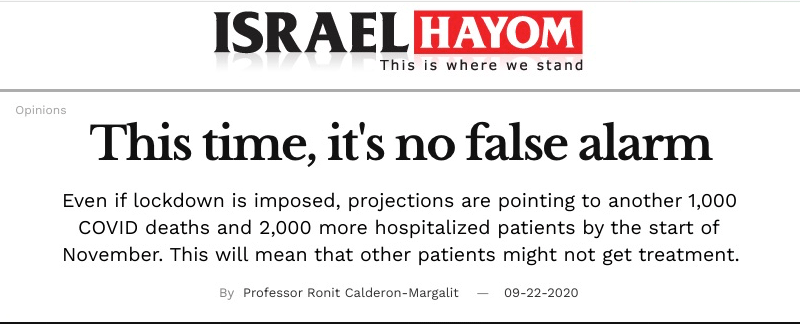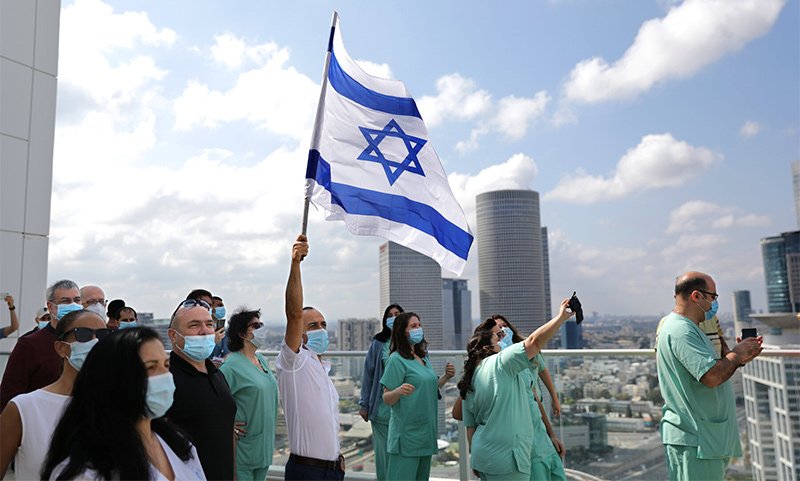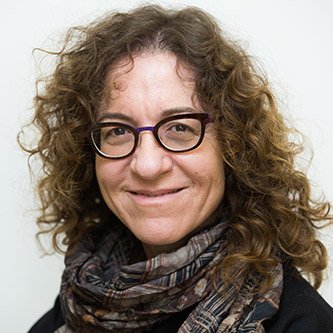

The Hebrew year 5781 has begun in the midst of a crisis. The crisis we are facing is a serious one for the health care system, and was caused by the ever-growing coronavirus pandemic. The rise in the number of cases has led to a rapid increase in the number of hospitalized patients, particularly the number in serious condition and on ventilators. Therefore, a corresponding rise in the mortality numbers is unavoidable.

Models to predict the number of seriously ill patients put us at 800 this week, the number at which the hospitals will be unable to cope. And with or without a lockdown, that number is expected to rise even higher. Even if a severe lockdown is imposed, we at the Hebrew University of Jerusalem are predicting another 1,000 COVID deaths by the start of November. Without a lockdown, the number of confirmed cases and number of seriously ill will rise sharply, and so will the number of people dying. (Assuming that restrictions remain in place, we are projecting another 2,000 seriously ill patients by the start of November). If the number of serious cases exceeds the hospitals’ capacity to provide treatment, patients needing hospitalization for other reasons might not receive appropriate treatment.
Are you sick of chilling predictions? That we were too frightened at the start of the pandemic? Nevertheless, this time, the alarm is real. The health care system is already under a heavy burden, to the extent that hospitals are opening coronavirus units in basements and parking lots, and patients are transferred from hospital to hospital. Some hospitals are refusing to take additional patients.
The burden is also taxing community clinics, where doctors are supposed to be seeing to some 50,000 corona patients who are not hospitalized, send them for tests, and provide documentation that they are no longer sick. The health care system is dealing with the burden of treating COVID patients in addition to other patients, and apparently, the latter group are the ones being hurt.
The burden to the health care system COVID is causing is underscored by a staff shortage – many have either tested positive for coronavirus or been assigned to quarantine. We must reduce the spread of the virus to decrease the need for care.

To reduce the number of cases, we must put emergency measures in place. A lockdown has many negative ramifications on the economy, on education, on mental health, and on our quality of life, and the government must take steps to provide economic aid to those in need. This pandemic should have been handled by strictly professional considerations, but it has become politicized, chaotic, and polarizing, which has led to damage on two main fronts. First, it has led us to a state in which a lockdown is required, something that could have been prevented if the crisis had been effectively managed from the start. Second, nearly everyone feels that various sectors are getting special treatment due to political pressure. That sense, along with the blatant disregard of public health regulations by people close to elected officials, and selective enforcement, are keeping the public from trusting the rules and the motives behind them. That feeling is also preventing social solidarity.
Public trust in the system and solidarity are vital forces in ensuring that people follow the rules, thereby reducing the number of cases. In the current battle, the public is on the front lines. If only these dark predictions turn out to be wrong, but even optimistic assessments put us at the brink of a precipice, and all that will be left is to try and control the damage.